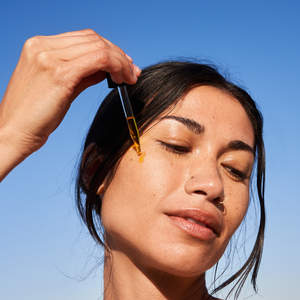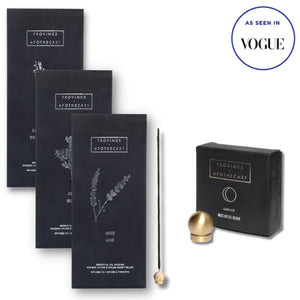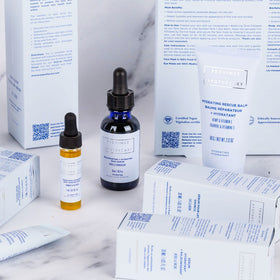Are your hormones leaving a mark?

Are Your Hormones Leaving a Mark?
Hormones and Adult Acne
Last week, I was chatting with a girlfriend about how frustrating it is to still be dealing with acne well into our 30’s. Not only do we have to start thinking about how to age gracefully, but we are still battling breakouts and covering up annoying spots. Hormones are the driving force behind this frustration; acne flares up when hormone levels shift and change throughout the month (and throughout your life).
What are hormones?
Hormones are regulatory substances produced by the endocrine glands (eg. thyroid, adrenals, pituitary, ovaries, etc) that are transported throughout the body and control most major bodily functions such as hunger, reproduction, emotions, and mood.
What hormones contribute to skin health and acne?
Testosterone
Testosterone is the primary male sex hormone but is also produced by the ovaries and adrenal cortex in women; it is one of the most significant hormones contributing to the development of acne. Excess testosterone increases sebum/oil production, which contributes to clogged pores. This sebum/oil also makes good food for acne-causing bacteria creating the perfect environment for frustrating breakouts.
In cases of women with Polycystic Ovarian Syndrome (PCOS), testosterone levels are often more significantly elevated making acne a hallmark symptom of this condition.
Estrogen and Progesterone
Estrogen and Progesterone are the predominant female sex hormones. Their balance is crucial for a woman’s health. When that balance is disrupted there are a number of physiological symptoms that can develop. Hormonal acne is often associated with low progesterone in relation to estrogen. Premenstrual breakouts and acne after birth control cessation are often associated with this imbalance.
Other signs of estrogen dominance and lower progesterone are:
- PMS (moodiness, cravings, cramps, bloating and breast tenderness etc)
- Weight gain around the abdomen
- Low libido
- Difficulty managing stress
- Irregular or heavy periods
- Anxiety and/or depression
- Headaches
- Insomnia
-
Fatigue
Cortisol
Cortisol is your body’s main stress hormone. When you are under stress, your adrenal glands produce cortisol. Chronic stress can manifest in a wide variety of ways – hair loss, disrupted sleep, food cravings, anxiety, etc. It can also wreak havoc on the skin, leading to breakouts. Cortisol interacts with the testosterone pathway and higher cortisol levels are associated with oilier skin. Additionally, having consistently elevated cortisol can weaken the proteins in your skin – collagen and elastin. When damaged these proteins make your skin more vulnerable to sagging and wrinkles as well as to inflammation and deep painful pimples. Another way in which cortisol impacts you skin is in it’s affect on wound healing. When cortisol levels are high it can take longer for blemishes to heal and for the dark spots they leave behind to fade.
How do you assess for hormonal imbalance?
To properly assess the hormones mentioned, I recommend salivary hormone testing. This method of testing hormones is the most commonly requisitioned to accurately monitor cortisol, DHEA, estrogen, progesterone and testosterone. Saliva identifies the level of hormones available in the body at the cellular level compared to blood tests that only measure the level of these hormones circulating in the bloodstream. This test can be ordered by a Naturopathic Doctor and a targeted treatment plan can be developed based on the results.
5 Skin Saving Strategies to Balance Hormones
- Hysterical Hormones
- Look for ways to inject humor and some good chuckles into your day. Laughter reduces stress hormones and enhances your feel good hormone production and immune system function.
- Seize Sufficient Z’s
- Without adequate restorative sleep, hormones will not be in balance. When you sleep your body is busy removing toxins, recharging your mind and generating hormones so sleep deprivation, even for a single night, can have a significant impact on your hormone levels and the appearance of your skin. Stick to a consistent bedtime and waking time and your skin will look more youthful and radiant.
- The Merits of Carrots
- Raw carrots contain a unique fiber that absorbs excess estrogen and helps the body efficiently perform it’s natural detoxification process. This is important because too much estrogen (whether produced by the body, the diet or from exposure to xenoestrogens in the environment) can lead to all kinds of hormonal disruptions, including PMS, mood disorders and acne.
- Befriend the Fat
- Healthy fats like coconut oil, avocados, grass-fed butter and ghee, egg yolks and nuts/seeds contribute to healthy hormone production. Most are rich-sources of the fat-soluble vitamins A, D, E and K, which are the key building blocks of our hormones. Additionally, healthy fats help to maintain properly hydrated and supple skin.
- Product Purge
- Eliminating personal care and cleaning products that contain ingredients that affect the endocrine system can help to both balance hormones and prevent future disruptions. Some of these ingredients to avoid include parabens, phthalates, polyethylene glycol, bisphenols and BHA.
For further support for balancing your hormones and achieving clear, glowing, healthy skin from the inside out connect with me, Dr. Jen Newell ND, on my facebook group, The Natural Skin Doctor.
Have a beautiful day!
xx Jen





